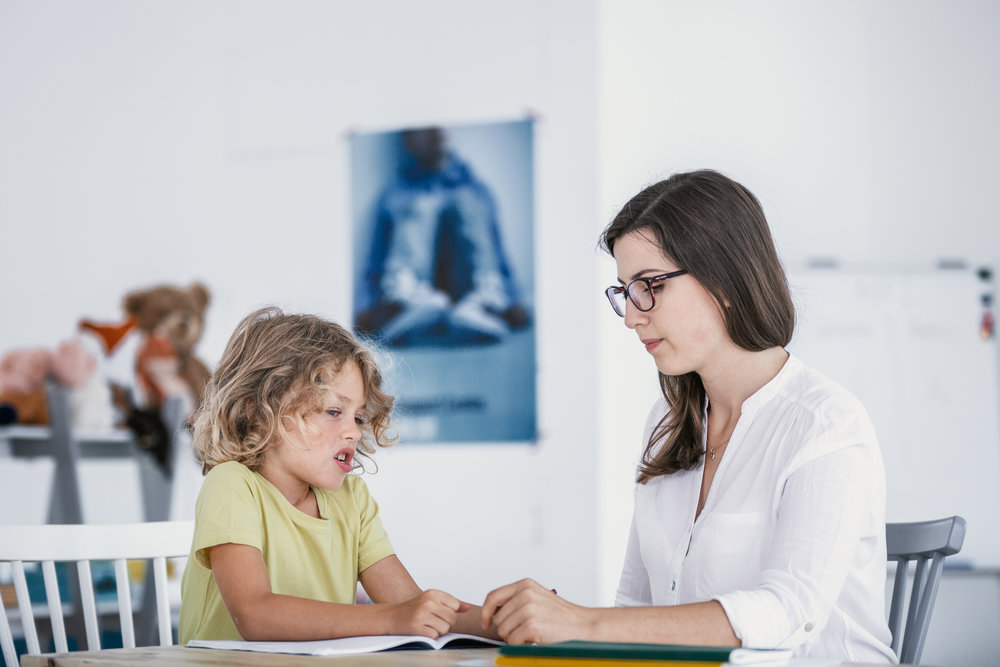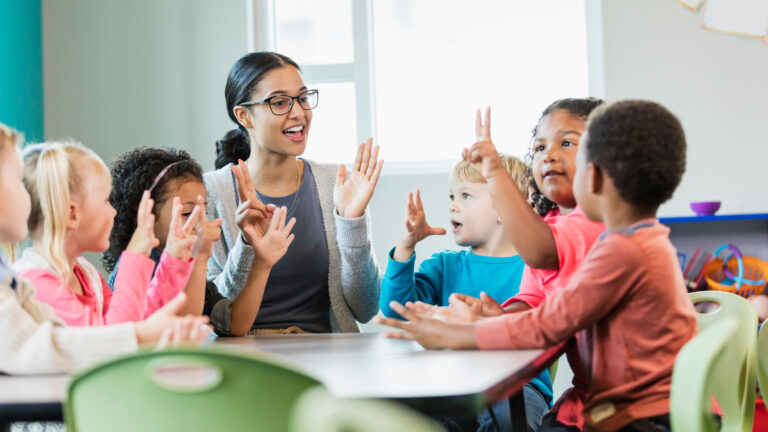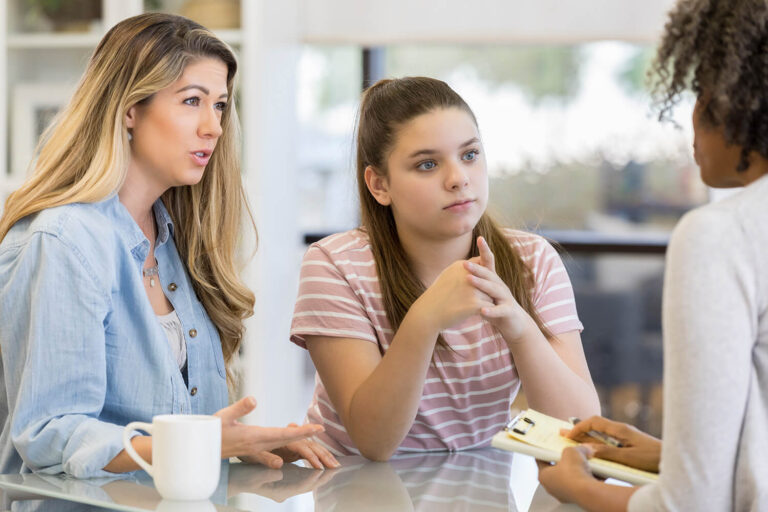How To Become An Elementary School Counselor? – Role And Tip
As an elementary school counselor, I understand what a rewarding job it can be. Being able to help children in need and provide guidance during their formative years is truly special. It’s my passion, and I’m thrilled to have the chance to do something that positively impacts young people’s lives.
I’ve been an elementary school counselor for more than five years, and I can share some knowledge about the job with you today. Whether you’re looking at becoming an elementary school counselor yourself or just curious about what we do every day, there are plenty of interesting facts to discover!
The Role Of An Elementary School Counselor
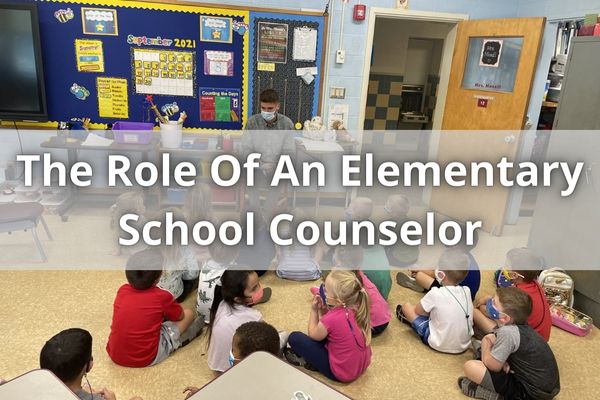
I am in charge of assisting kids with their growth and offering them academic support as an elementary school counselor. In order to make sure that every need of the kid is being satisfied, it is my responsibility to collaborate closely with both students and instructors. My role requires me to have strong communication skills so that I can effectively help each student in our school.
I provide counseling services as part of a comprehensive school counseling program which includes academic support, career exploration, social/emotional guidance, college readiness and more. I work to establish a secure learning atmosphere where each student has access to the tools they require to succeed through this program.
Additionally, I collaborate with parents and faculty members on behalf of students who may require extra assistance or intervention.
The goal of my work as an elementary school counselor is to develop meaningful relationships with students while advocating for their best interests. To do this successfully, I must remain up-to-date on current research related to child development and utilize evidence-based practices when working with individual students or groups within our community. With these strategies in place we can foster educational growth through positive outcomes at our school.
Moving forward into the next section about academic support…
Academic Support
As a counselor in an elementary school, I understand how important academic support is for a learner’s success. This is why I make sure that our school counseling programs prioritize the development of strong academic skills and social skills. Our goal is to ensure that all learners can thrive academically and emotionally throughout their time at the school.
Here are some ways we provide academic support:
- Offering individualized instruction tailored to each student’s needs
- Connecting families to helpful resources outside of the classroom
- Encouraging self-advocacy among students when it comes to their education
We strive to ensure that every child feels confident and supported in their learning journey. We also recognize that certain areas may require additional attention or services. That’s why our team works closely with teachers, administrators, families, and other professionals as necessary to create personalized solutions for each learner.
It’s clear that providing quality academic support is essential for creating positive outcomes in children’s lives.
Now let’s take a look at how we offer social and emotional support…
Social And Emotional Support
After talking about how crucial academic help is for kids, it’s critical to take into account social and emotional support. In order to assist children better handle their personal issues at home and at school, social work with children focuses on fostering in them a feeling of self-worth and resilience. As a counselor at an elementary school, it is my mission to offer pupils this sort of assistance so that they may more easily achieve their objectives both inside and outside of the classroom.
| Benefits | Ways to Support |
| Enhances positive behavior | Positive reinforcement & role modeling |
| Develops self-awareness & empathy | Active listening & problem solving activities |
| Builds team skills & trust | Group activities & dialogue circles |
| Encourages collaboration between teachers, parents, counselors & other professionals | Regular meetings or communication channels such as emails/phone calls |
To effectively support students’ social-emotional development, I believe there must be collaboration amongst all involved parties: teachers, administrators, parents and other professionals. Through comprehensive assessments and planning together we can ensure each student has access to resources needed for overall growth. Additionally, through providing clear guidance about expectations for appropriate behaviors within the environment ,students are able to make informed decisions regarding career and college opportunities down the road.
Career And College Guidance
One of my main duties as a counselor at an elementary school is to assist children in navigating their academic careers. I’m here to offer counseling and direction for any problems that could come up while they’re in school. And I’m more than willing to help when it comes to preparing for college or a future profession!
I have a Bachelor’s degree in Counseling Psychology and a Master’s Degree in Education. With these qualifications, I am well equipped with the resources to help students understand what they need to do before they enter postsecondary education – whether that be college or vocational training. From researching colleges and universities to filling out applications, I can help every step of the way.
As an elementary school counselor, my duties go beyond merely responding to students’ inquiries about colleges or occupations; I also work to provide them the information and assurance they need to make wise decisions at every stage of the process.
We must provide a secure environment where kids may raise challenging questions without being put off by adults who don’t always understand what young people need.
At its core, conflict resolution is another form of understanding how best individuals can work together towards common goals.
Conflict Resolution

Now that we have discussed career and college guidance, let’s move on to a different aspect of my job as an elementary school counselor: conflict resolution.
As part of my role in the school, I am responsible for helping students learn how to manage their disagreements constructively. This involves teaching them problem-solving skills and communication strategies, as well as working with teachers to create classroom environments conducive to healthy conflict management.
My job description also includes engaging in evidence-based practices when addressing conflicts between students. This means I use interventions based on research studies rather than relying solely on personal judgement or experience. Additionally, it is important that I help the students involved gain insight into each other’s perspectives while maintaining respect for all parties concerned.
As part of this process, I often meet individually with both students and collaboratively design action plans which will foster better collaboration within the classroom setting.
Furthermore, I provide consultation services to teachers about effective methods for managing student behavior and resolving disputes so that they can become more self-reliant when it comes to dealing with these issues among their own students.
By focusing on conflict resolution through counseling techniques such as collaborative problem solving and mediation, my goal is always to promote improved relationships between the students in order to improve overall social functioning at our school.
In addition to this work, I’m proud that I also offer mental health services including individual counseling sessions and group therapy activities for children who are struggling emotionally or psychologically.
Mental Health Services
Welcome to a discussion on mental health services in elementary school! All students must receive the care they require since mental health is a crucial component of personal growth for all students and can have long-term effects. In this section, I’ll go over counseling best practices and how to cater to the unique requirements of each of our students within the framework of mental health services.
| Counseling | Needs Of Students | Best Practices |
| Connect with each student individually | Assess what each student needs | Utilize evidence-based approaches such as Cognitive Behavioral Therapy (CBT), Trauma Focused CBT (TF–CBT), Dialectical Behavior Therapy (DBT), or Acceptance Commitment Therapy (ACT). |
| Acknowledge their feelings | Create plans tailored to those needs | Encourage collaboration between home and school. |
| Help them identify areas to focus on | Regularly check-in & adjust if necessary | Provide mindfulness training |
| Provide resources beyond 1:1 sessions as needed | Track progress over time | Advocate for increased awareness & access to mental health services |
We can make sure that all of our pupils are receiving the mental health treatment they require by employing these techniques. This all-encompassing strategy not only enables us to satisfy the current requirements of our kids, but it also creates a future potential for deeper connection. Now let’s take a look at substance abuse prevention.
Substance Abuse Prevention
As an elementary school counselor, I may be responsible for many things. One of my most important roles is helping students remain safe and healthy, which includes preventing substance abuse. My role requires me to have a bachelor’s degree in counseling or psychology that has been accredit by the state board.
Students need support when it comes to navigating their way through life without substances and drugs, and this must start early on. To ensure effective substance abuse prevention, I work with teachers and parents to create a school-wide approach. This involves discussing various topics such as peer pressure and signs of drug use with both students and adults within our school community.
Additionally, I provide resources such as pamphlets about substance abuse awareness throughout the building so everyone can easily access them at any time. I also meet with individual students who are struggling with substance abuse issues in order to provide guidance and assistance tailored specifically around their needs. It is my job to help these children reduce their risk of further harm from drugs or alcohol by providing direct intervention services and referral options if necessary.
With all of these activities combined, we can better equip our students for success today as well as in the future.
Nowadays classroom guidance programs play an increasingly important role in promoting positive student behavior and academic achievement. Educators have different strategies they employ in designing classrooms conducive for learning; however, counselors serve a vital part in developing those strategies into real-world application for each child’s unique situation.
Classroom Guidance
After talking about preventing substance addiction, it’s time to move on to another crucial subject: classroom guidance. I’ll be talking about how counselors work with young students to help them acquire the abilities necessary for effective academic and social-emotional growth in this segment of the workshop.
In order to help children better control their emotions and conduct, counselors are accessible in schools to offer them tools and assistance. Additionally, we work to provide our pupils with crucial life skills including teamwork, self-awareness, communication, problem-solving, and decision-making. By providing students with these tools, we can promote success both inside and outside the classroom setting.
In addition, counselors provide one-on-one or group counseling sessions where we may discuss a range of issues pertaining to student development, such as bullying, peer pressure, stress management, emotional regulation, and more.
It is evident that cooperation between parents and instructors plays a crucial part in assisting our pupils in realizing their full potential given the variety of methods counselors may support young learners in attaining their goals within educational settings. This degree of cooperation enables us to guarantee that our students have access to suitable learning environments where they will not only acquire information but also strengthen their interpersonal connections while accumulating valuable job experience throughout the course of their academic careers.
As we transition into the next section about strengthening family partnerships through collaborative efforts with educators and other professionals let’s reflect on what has been discussed today thus far!
Collaboration With Parents And Teachers
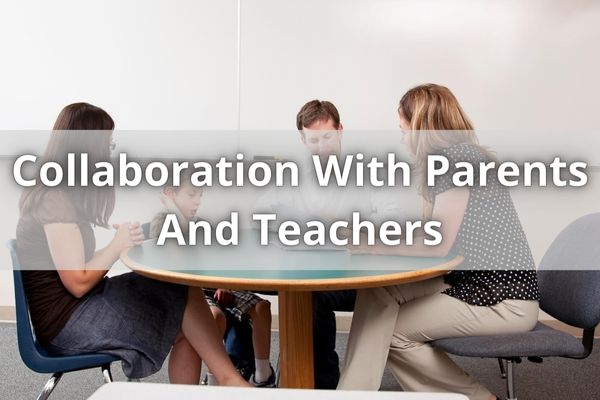
I collaborate with teachers and administrators, as well as stakeholders like parents to help students develop healthy relationships.
My undergraduate degree in psychology helps me understand the needs of children so I can better assess their behaviors and offer advice on how to best interact with them.
Together, we strive to create a safe learning environment for every student. Sometimes I need additional resources when working with families who might be facing personal crises or have difficulty communicating effectively.
In these instances, it is important that my work reflects the values of our school district while also helping families find ways to address any issues they are having. To achieve this end, I often lead meetings where all concerned parties can come together and discuss solutions in an open-minded way.
To ensure that everyone’s voices are heard during such conversations, I use active listening techniques and try to keep communication lines open at all times.
This allows us to foster meaningful connections between adults and children alike so that everyone involved feels comfortable expressing themselves without fear of judgement or reprimand.
By engaging in thoughtful dialogue, we can arrive at positive outcomes for both students and their families. Crisis intervention sometimes requires fast action from counselors; therefore, being able to recognize the signs quickly is key in order to provide timely help.
Crisis Intervention
As counselors, we understand the importance of intervening in crisis situations effectively and efficiently. We need to be prepared for these scenarios with knowledge and experience that will help us provide support for those who are struggling. Our duties can include performing background checks on potential employees, providing individual counseling sessions for students, making referrals to outside services, and more.
When it comes to supporting our students during a crisis situation, having an understanding of their unique needs is essential. We must remember that no two crises have the same circumstances or require the same type of intervention – so as counselors it’s important to remain flexible while still offering effective interventions tailored towards each student’s needs.
Additionally, working collaboratively with families, teachers, administrators and other professionals provides opportunities to gain insight into how best to move forward when addressing particular issues. As part of our job responsibilities, we must strive to create safe learning environments where all students feel accepted regardless of race/ethnicity, gender identity/expression, sexual orientation and socio-economic status.
In order to do this successfully, we need to develop strategies that can foster trust among ourselves and those we serve – creating relationships built on mutual respect that allow us to work together when facing difficult challenges or periods of distress. Moving forward into the next section about supporting diverse student populations, let’s take some time to consider what approaches may be most effective in promoting belongingness within our schools’ communities…
Supporting Diverse Student Populations
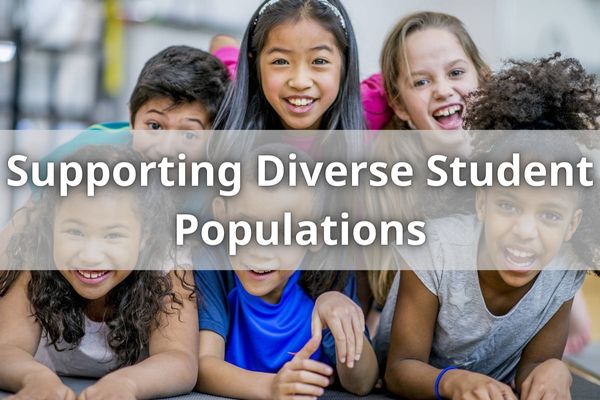
I’m passionate about working with students to support their emotional needs. As an elementary school counselor, I have a master’s degree in counseling that enables me to work with diverse student populations and help them identify resources they can access for social-emotional learning.
Counselors also provide individualized support by getting to know each student and helping them develop the skills necessary to manage stress, build relationships, and set goals. We use various techniques such as talk therapy, play therapy, and art therapy when working with our students. This helps us create a safe environment for children of all backgrounds where they feel comfortable expressing themselves without fear or judgement.
We are also able to offer guidance on academic topics like time management, organization, study habits and test anxiety so that our students can thrive academically. Our goal is to ensure that every student feels supported regardless of race, religion, gender identity or socioeconomic status.
We strive to create an inclusive atmosphere at our school which allows everyone to learn from one another and celebrate differences among peers!
Conclusion: Is Becoming An Elementary School Counseling Essential?
As a parent, it’s understandable to be concerned about your child’s development. Elementary school counselors are here to help you and your child on this journey – by providing resources, offering support, and helping them learn the skills they need for long-term success.
If your child is struggling with any of these issues or needs additional guidance, don’t hesitate to reach out to their elementary school counselor. With their expertise in student well-being and academic success, they can provide invaluable assistance during an important time in your child’s life.

